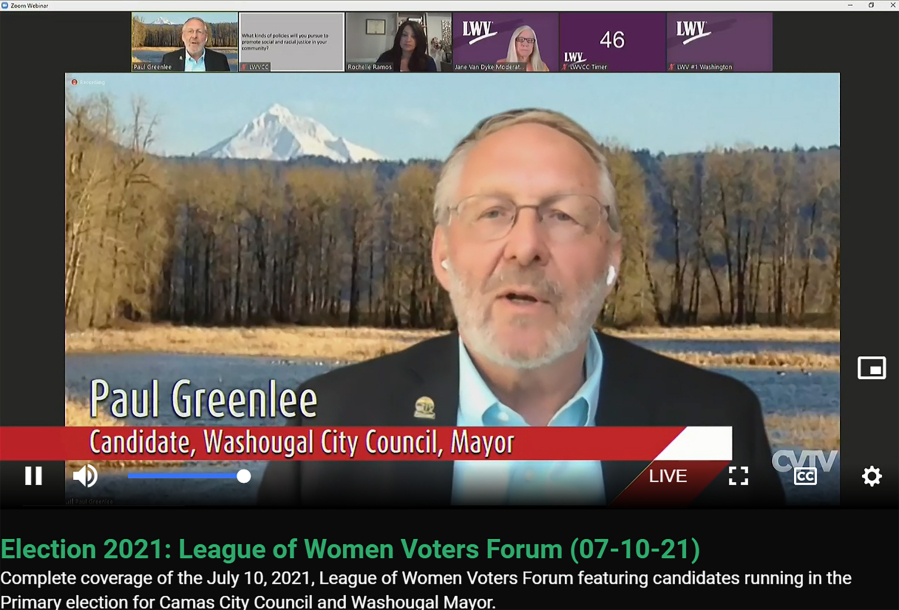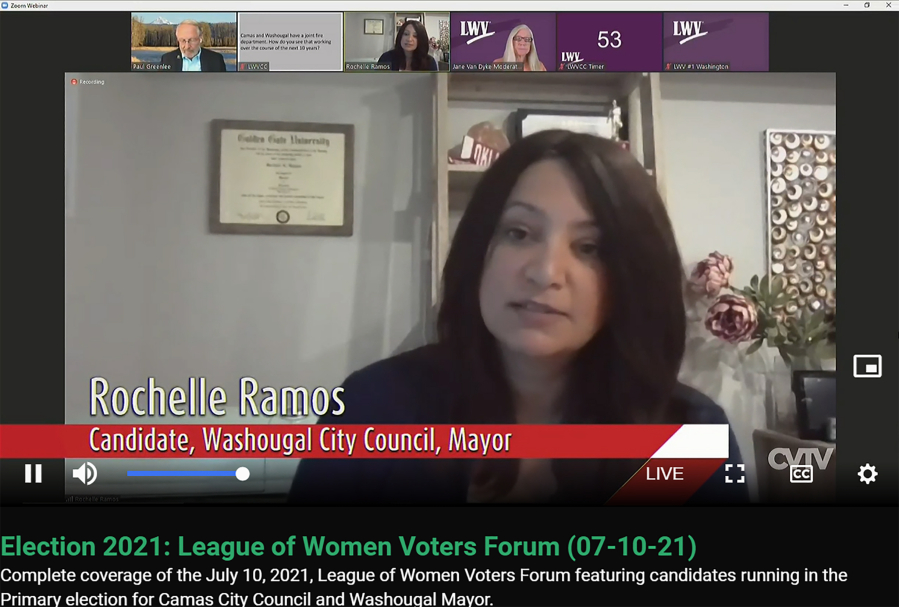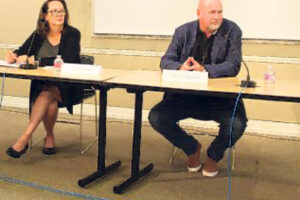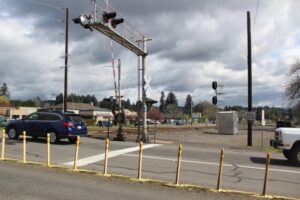Paul Greenlee is a longtime Washougal City Council member who is trying to “turn a bunch of garage doors into a community” and “bring people together.” Rochelle Ramos is a longtime community volunteer who is hoping to bring a “fresh perspective” to the city’s pressing issues. Both of them believe they can succeed as Washougal’s next mayor.
Greenlee and Ramos discussed their views about a variety of subjects, including racial and social justice, homelessness, the city’s financial situation, police officer recruiting and retention, and city growth, during the League of Women Voters of Clark County’s candidate forum, held online on Saturday, July 10. Derik Ford, who is also running for mayor, did not respond to an invitation to participate, according to the League’s moderator, Jane Van Dyke.
Greenlee and Ramos discussed their views on the future of the joint Camas-Washougal Fire Department, which has had issues over funding new firefighter-paramedic positions, with the city of Washougal struggling to afford its roughly 40-percent share of the positions’ costs.
The cities recently hired Tualatin, Oregon-based consultants Merina+Co to review the partnership and look at alternative funding schemes. Ramos and Greenlee both indicated during the July 10 forum that they want to review the consultants’ conclusions before making any definitive declarations about the fire department partnership.
“I know that Washougal has a lot of emergency service calls, probably more than Camas and more than the fire department calls, so I’d like to see if there’s an opportunity to increase support for that portion of our contract versus the entire gamut of it,” Ramos said. “That said, I think Washougal needs to determine a way to be able to support our portion of the bill. I don’t think we’ve been successful with that, unfortunately, in the past, (through) no fault of anyone. But as our costs increase and our needs increase because our population is becoming older, we need to figure out how we’re going to address that, not just now but five, 10 years down the road so that we’re not continually looking at solving this problem or being reactive versus proactive for our future.”





